Starting June 3, Six volunteers are spending 520 days in isolation as part of Mars 500, an experiment to see how humans deal with long-term space travel. The international crew includes three people from Russia, one from France, one from Italy and one from China.
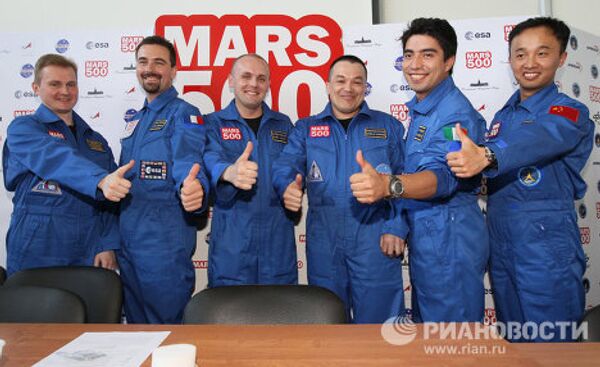
The international crew includes three people from Russia, one from France, one from Italy and one from China. Photo: Commander Alexei Sitev (left), researcher Wang Yue, engineer Romain Charles, physician Sukhrob Kamolov, researchers Diego Urbina and Alexander Smoleyevsky.
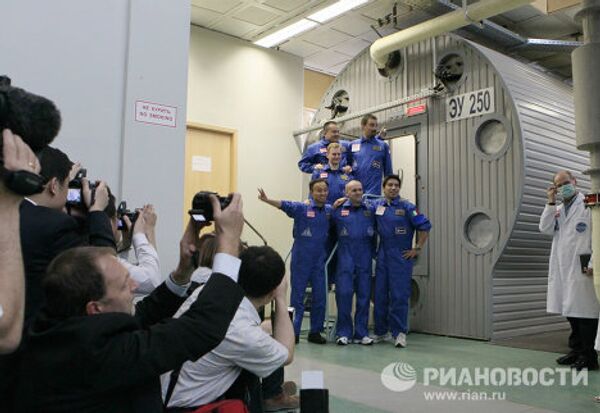
The experiment comprises three distinct simulated stages: a 250-day flight to Mars, a 30-day stay on its surface and a 240-day flight back to Earth.
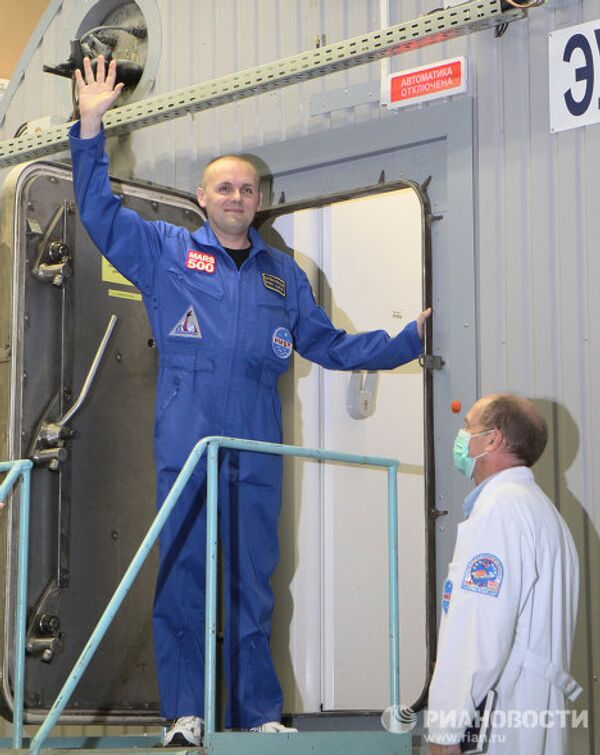
The international crew is led by Russian engineer Alexei Sitev, and Sukhrob Kamolov, also a Russian national, will take care of the crew’s health during the flight. Photo: Commander Alexei Sitev before boarding the capsule.
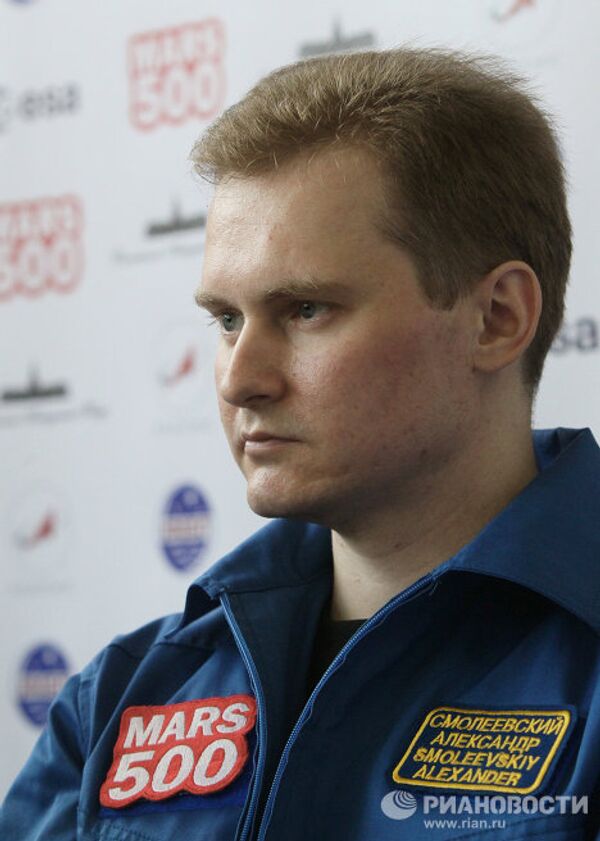
Alexander Smoleyevsky will carry out research during the flight. Photo: Alexander Smoleyevsky.
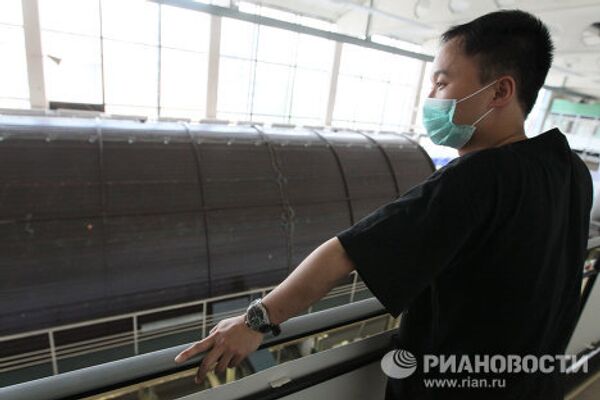
Romain Charles of France was appointed onboard engineer, and Diego Urbina of Italy and Wang Yue of China are researchers. Photo: Wang Yue at the Russian Academy of Sciences' Institute of Biomedical Problems (IBMP) in Moscow.
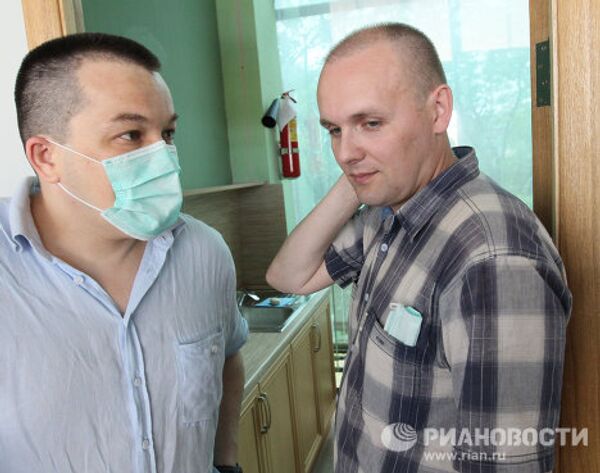
Each of the Russians will receive about 3 million rubles for participating in the program, and the European volunteers will earn a similar amount. Photo: Physician Sukhrob Kamolov (left) with Commander Alexei Sitev at the Institute of Biomedical Problems.
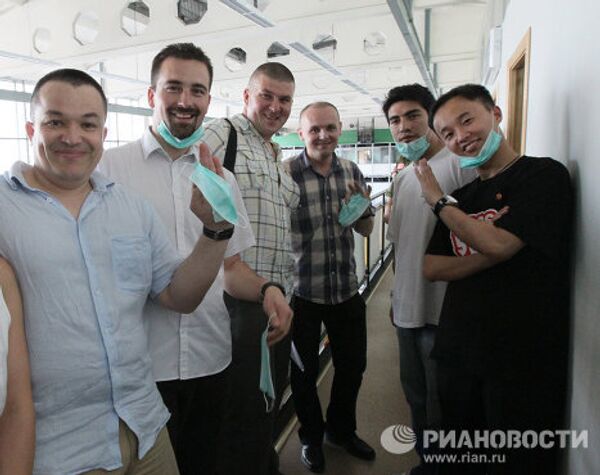
The volunteers were allowed to take as many personal belongings as they wished. All six have assured the organizers that they will not get bored. Photo: Physician Sukhrob Kamolov (left), engineer Romain Charles, Commander Alexei Sitev (fourth left), researcher Wang Yue (right) and researcher Diego Urbina (second right) at the Institute of Biomedical Problems.
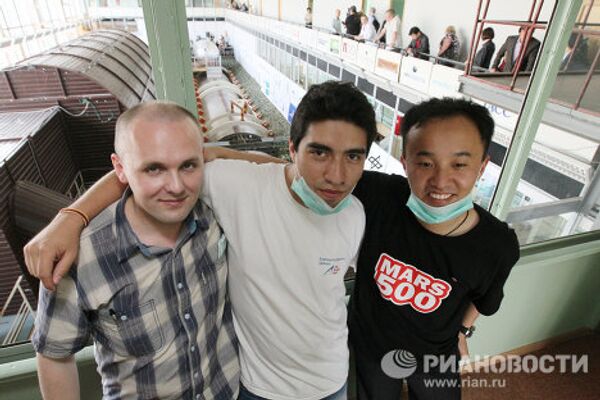
Diego Urbina took his electronic drum and percussion system on board.
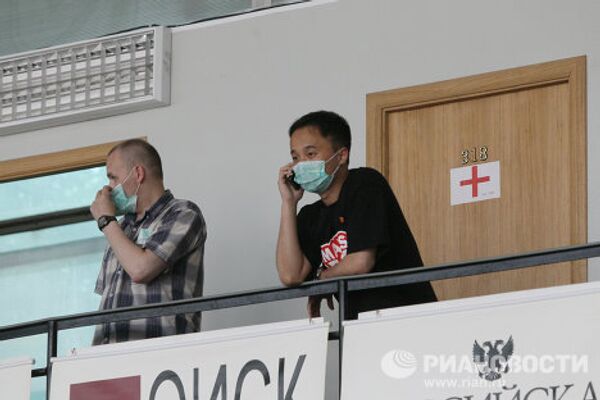
“I took brushes and ink to paint. I want to introduce the international crew to aspects of Chinese culture. I would also like to learn Russian during the flight,” Wang Yue said. Photo: Commander Alexei Sitev (left) with researcher Wang Yue at the Institute of Biomedical Problems.
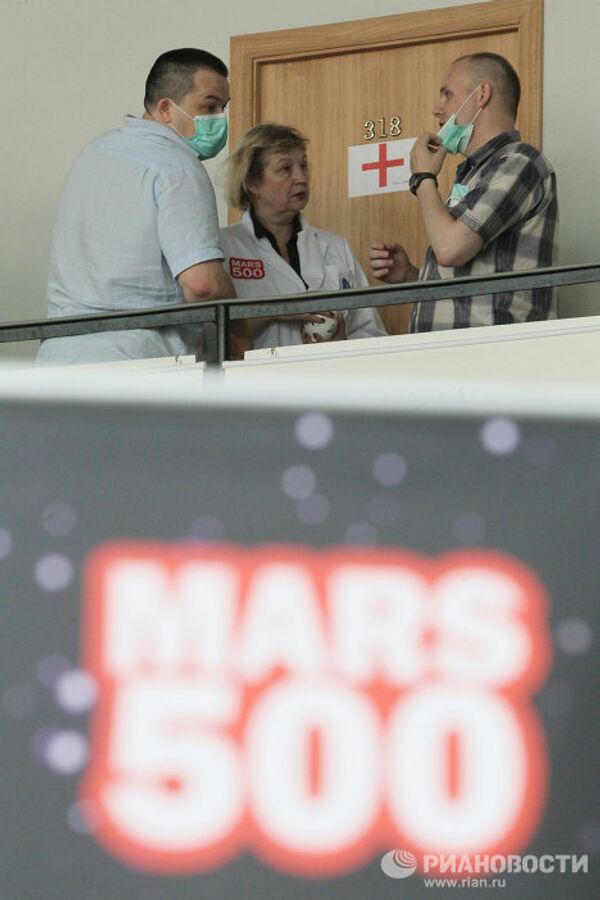
All crew members agreed that their primary goal was to make it through to the end of the experiment and not drop out, which is an option.
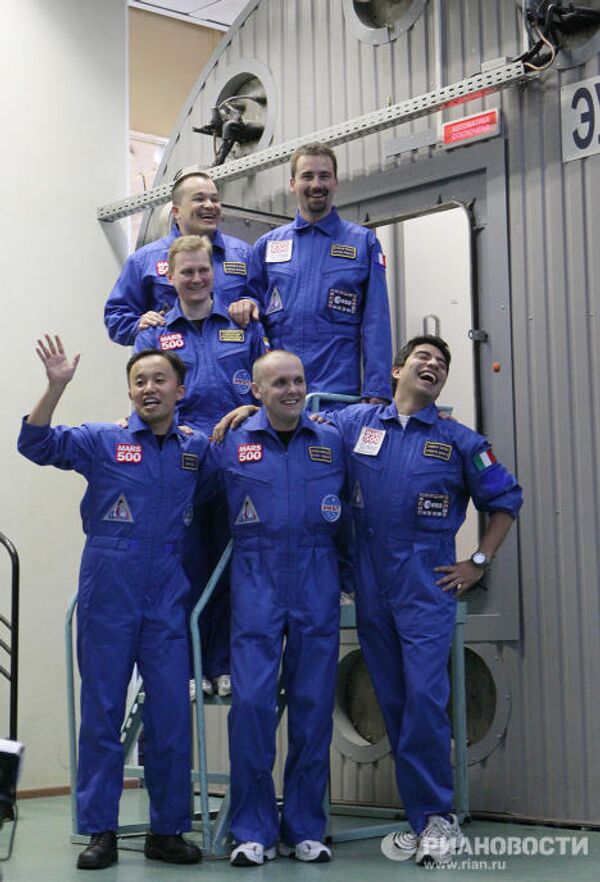
The crew members saluted the crowd of reporters who gathered at the Institute of Biomedical Problems to see them off, before sealing the entrances.
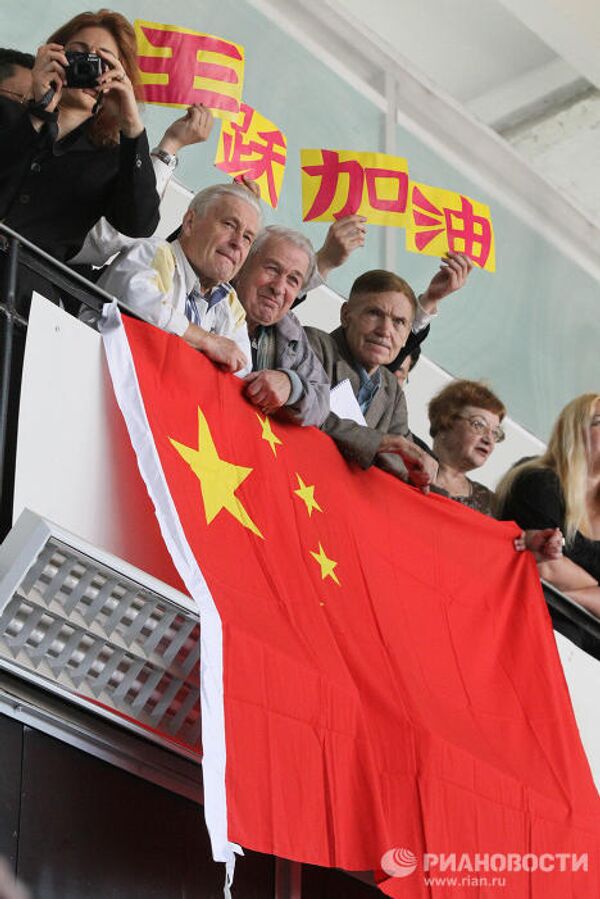
Bai Yan-qiang, deputy director of China’s Astronaut Training Center, said the ground-based simulation of a Mars flight is a historic moment, not just for Russia, but for the entire international community as well.

